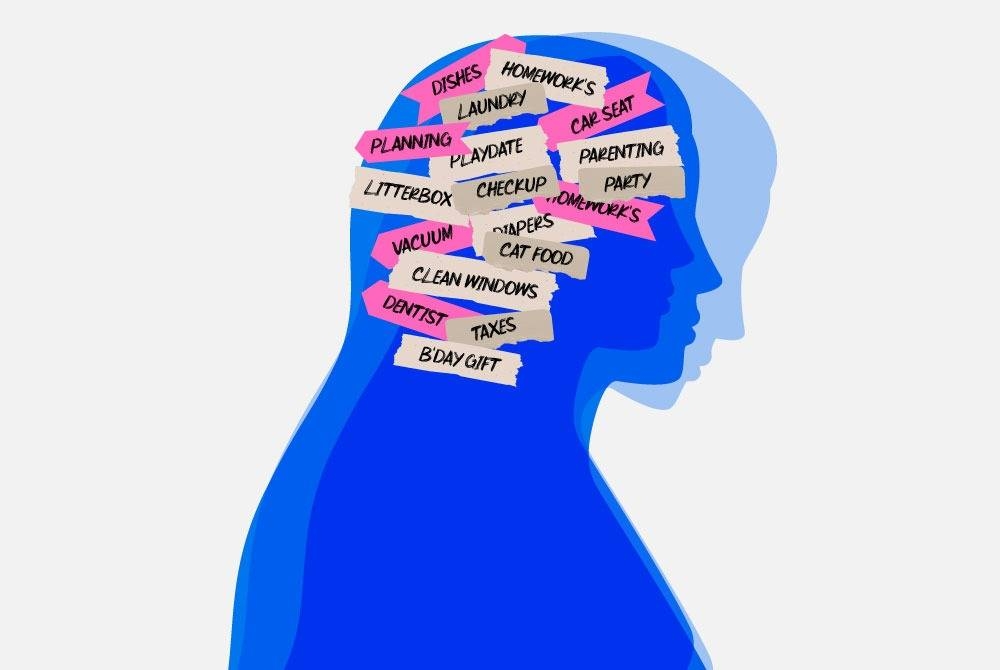The Mental Load: Women's invisible labour
ILI LIYANA MOKHTAR
This Mother’s Day, I want to talk about that famous term that’s going around these days: ‘The Mental Load’.
Ask any mother, and I mean this - any mother, they will always tell you there is something going on in their minds mostly related to family and home management.
As mothers, our minds are always going, moving. Going in a million different directions, a thousand tabs opened in our brains. Continuously moving.
The number one thing I often hear from mothers on a daily basis is “I am so tired” and “I have to think about everything”.
You see the key word here is “think”.
I don’t know how or exactly why, but mothers are mostly in charge of 10,000 things a household requires to run at optimum level, never mind that a mom works, and we kind of have a never-ending work day. Sometimes I am at the kitchen table trying to get my son to eat, help my daughter with school work and the laptop is open with work. The laundry is spinning in the background and in the midst of it all, I am planning a schedule for the week with the babysitter.
Did I mention we’re also scheduling dentist appointments? I am reading an article on how to help my special needs son, and my teen is trying to bargain about going to her friends house.
There’s my phone and my laptop buzzing for attention and work matters and most of the time, I feel like an octopus with eight hands doing eight things at the same time.
Its just not this that we manage as mothers but somehow we also need to think about cleaning, the meals, the gift-buying, the brushing, the laundering - basically the caring about everything.
Don’t get me wrong. The father still does his share and we are luckier than most. My partner fetches the kids from school most days, takes out the garbage, does the laundry, and when he comes home, he wash the dishes.
But even-though he is a huge help and handles certain chores, there is me there behind the scenes reminding which payments are we late on, what is due, reminding him of the kids schedule and who has what when.
Without me, no one would remember that the garbage bags need to be topped up, the toothpaste is finished and that we need cat litter.
This is the invisible work that we do, and this is why we are tired. This is the mental load. It is heavy and in most families, it is carried by a mom.
American sociologist Arlie Hochschild termed women’s domestic labour done after work as the “second shift” - but the mental load has no shifts – it can be done before, during and after work or even during time that should be spent resting or sleeping.
The mental load endures, meaning it never ends even as a children grow into adulthood. A mother will worry.
Unlike housework such as like cooking or cleaning, thinking and caring about family members never ends, and that is why even when you are 40 and going into just a little minor surgery your own mother will cry.
So how do we make partners aware of the mental load we carry and how do we lessen it and make it more visible?
Recent reports on housework show women do 21 more hours of unpaid work than men. They may also spend the bulk of the day thinking about, planning and worrying about their families.
I think the first step is acknowledging the toll the mental load has on women.
The exhaustion of the physical demands of work and family but also the cognitive labour of holding it all together at work while worrying about our children’s educational futures are we doing screen time? Are we not? Are we destroying their futures? Are we spoiling them? This can go on in our head while we are taking our second cup of coffee for the day.
The mental load is our inner nag, a drain on well-being with serious consequences for economic productivity and fatigue.
If you ask me it should be a thing that should seriously be taken by workplaces and governments alike.
Both organisations and governments need to be better at helping families combine their work and care responsibilities.
The mental load overloads women (and some men) particularly at work when they are thinking and worrying about their families needs.
Workplaces need to improve support for families. This may mean more flexible working arrangements or programmes that are able to support women and mothers. There have been countless research already how this will likely improve workers’ productivity.
At the same time, governments need to provide better care infrastructure to support families, for example more affordable childcare, support for transitioning children to and from school, and better aged care. This will lessen worries about the experiences of loved ones while mothers are engaged in paid work.
Ultimately, the mental load is a mental health issue and companies and governments should treat it as such. This will unburden families, and particularly mothers, from managing the mental load alone.
If you are a mother and if you have been nodding along while reading this, know that I get it.
Know that I wish we could carry less, but also that I admire your strength and resilience for carrying your families with such grace.
No one does it better. You really should be celebrated everyday.
So, Happy Mother’s Day you amazing beings - yesterday, today and tomorrow. But also please remember, it is 2023! Just ask for help, (although sometimes it can be hard) get your partners to carry some of the load off.
We really should work towards sharing the mental load. You really deserve it!










